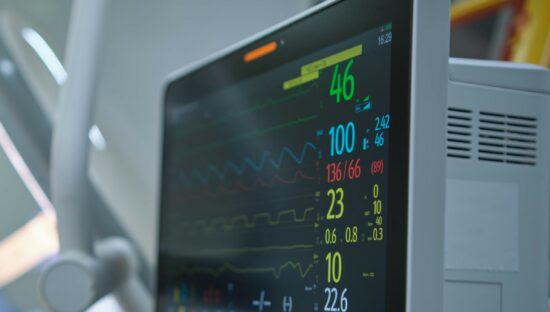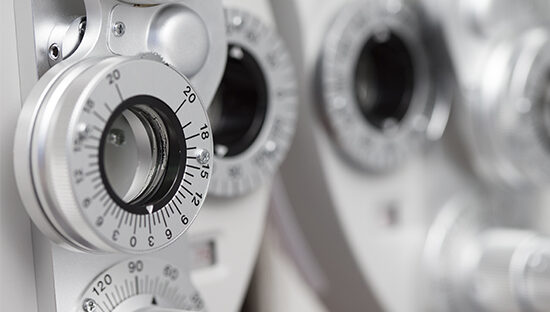
Live Briefs at ARU
At ARU, Live Briefs are an integral part of the course assessment and an essential aspect of teaching. They offer students a chance to apply their knowledge to current issues, preparing them for future employment. Live Briefs provide a valuable opportunity for industry specialists to engage with ARU students by presenting them with a real-world task. This collaboration allows students to apply their knowledge and creativity to come up with fresh ideas and solutions that can benefit the industry. By working on Live Briefs, students gain practical experience in problem-solving, critical thinking, and communication skills, which are crucial for their future careers. Additionally, Live Briefs offer industry specialists an opportunity to interact with students, identifying potential future employees and building relationships with the university.
Student Live Brief – Improving Disinfection Protocols for Medical Devices
In the healthcare industry, the safety and effectiveness of medical devices are paramount to improving patient outcomes. One critical aspect of device safety is the disinfection protocols used to prevent infections. These protocols must align with recognised NHS cleaning standards for infection prevention and control (IPC).
Recently, Test Labs UK partnered with ARU Peterborough University on a Live Brief task that involved students in identifying gaps between disinfection protocols provided by medical device manufacturers and the recognised NHS IPC standards. Identifying these gaps is a crucial area to address, as discrepancies between protocols can increase the risk of infection, device damage, and regulatory compliance issues.
The student teams at ARU demonstrated great dedication and enthusiasm in producing posters summarising their research findings and providing recommendations for improving disinfection protocols. Their work is vital for reducing the risk of infections, preventing device damage, and ensuring regulatory compliance.
Through this Live Brief collaboration, the students gained valuable experience in applying their knowledge and creativity to real-world problems. Such experiences prepare them for their future employment and help them develop critical skills necessary for success in the healthcare industry. The collaboration also provided Test Labs UK with fresh perspectives and innovative solutions, demonstrating the value of collaboration between industry and academia.
Sustainable medical devices
The relevance of industry in this context is significant as medical device manufacturers have a responsibility to ensure that their products are not only safe and effective but also sustainable and environmentally friendly. This is becoming increasingly important as the healthcare industry strives to reduce its carbon footprint and achieve net-zero carbon emissions. Medical device manufacturers need to consider the entire product life cycle, from production to disposal, and implement sustainable practices to reduce waste and energy consumption.
In addition, the Medical Devices Regulation (MDR) emphasizes the importance of material compatibility in medical device safety testing. This highlights the need for manufacturers to work closely with industry experts and testing labs to ensure that their products are rigorously tested and comply with regulatory standards. Collaboration between academia and industry can play a crucial role in achieving these goals by bringing together research expertise, practical experience, and cutting-edge technology to develop sustainable and safe medical devices.

Collaboration: Key to Achieving Step Change in Healthcare
Achieving step change in any industry often requires collaboration between multiple stakeholders. In healthcare, this includes collaboration between academia, industry, healthcare providers, policymakers, and patients. Each stakeholder brings unique expertise, perspectives, and resources to the table. By working together, they can identify opportunities for improvement and drive progress towards better healthcare outcomes.
Collaboration between academia and industry can bring numerous benefits to the healthcare industry. Academic institutions bring research expertise, access to cutting-edge technology, and a fresh perspective to industry problems. Industry, on the other hand, brings practical experience, funding, and resources to turn academic research into real-world solutions. By working together, academia and industry can leverage their respective strengths to drive progress and innovation in healthcare.
Healthcare is an industry that is constantly evolving, with new discoveries and innovations emerging all the time. Collaboration between academia and industry can help ensure that the latest research and technology are being applied to practical problems faced by healthcare providers and patients. This can result in more efficient and effective healthcare solutions, as well as better outcomes for patients.
Student Posters: Check Them Out!
Group 1 – Disinfection of Ward Beds
Group 2 – Reprocessing of surgical instruments
Group 3 – Discrepancies of complexity in cleaning instructions for infusion pumps
Group 4 – Hygiene and Maintenance of Dental Equipment
Group 5 – Non-invasive blood pressure (NIBP) cuffs cleaning and disinfection










